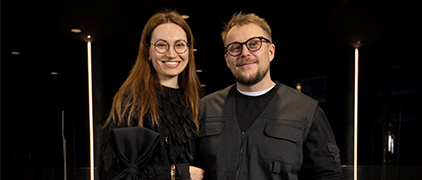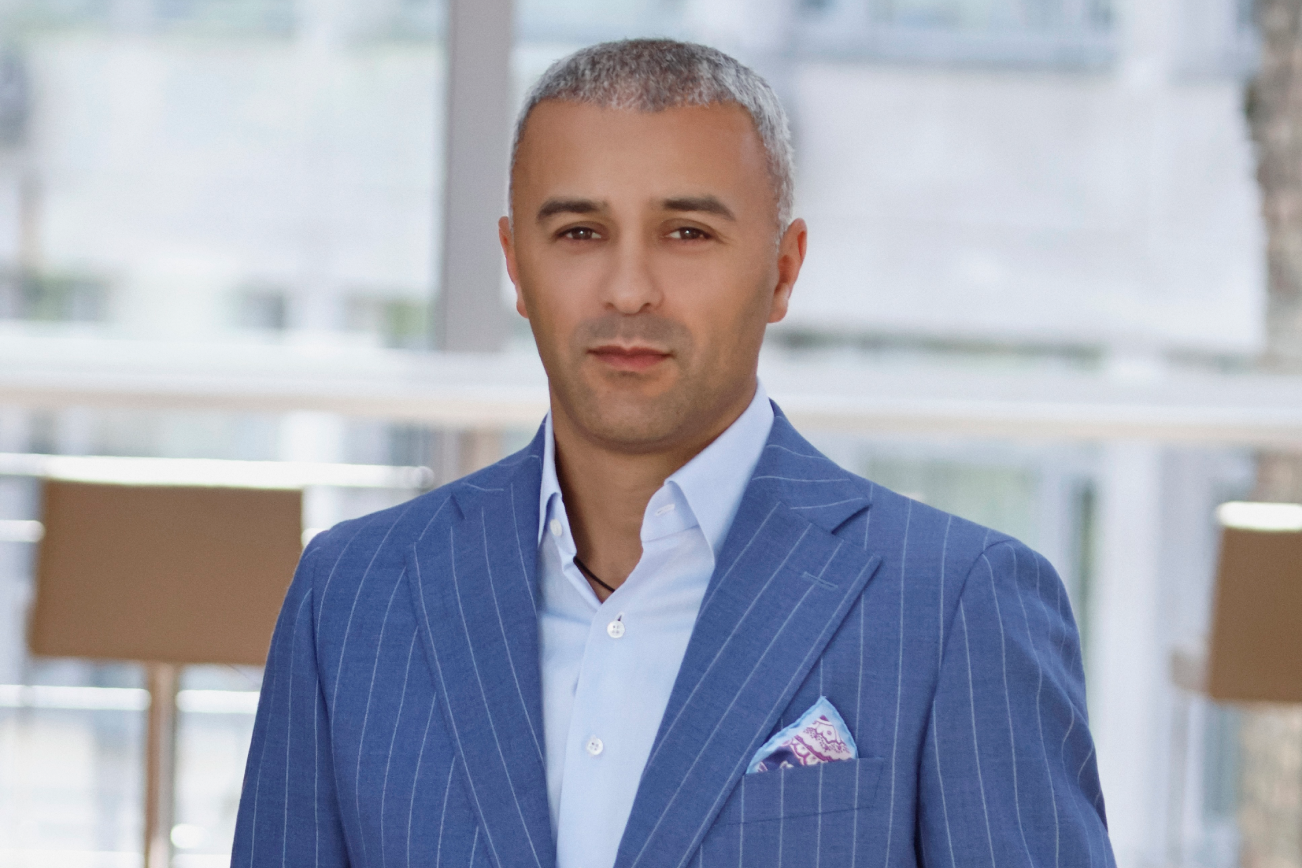Read 4 min,
Shields: “We Teach Businesses That It’s Cool and Important to Talk About Good Deeds”

Shields: “We Teach Businesses That It’s Cool and Important to Talk About Good Deeds”
The story of the Shields Foundation began with volunteering at the onset of the full-scale invasion and grew into an official charitable foundation operating for a year and a half already.
The Foundation’s interaction with businesses is based on mutual support and perfect match. Their superpowers lie in cooperation founded on trust and an analytical approach to understanding the needs of the army.
Tanya Kameneva, founder and director of the Foundation, tells how the team manages to create such a great community, what the role and participation of businesses in this is, and how the foundation has managed to establish effective operations during the war.
How did you realize you needed a foundation? What was the turning point for you to see you couldn’t continue as volunteers?
For almost a year, we worked as volunteers without a foundation. In a year, it got clear that our work was growing more systemic, we had a team and a rising number of military units to support. It had turned into more than just disaster relief, and we decided to register a foundation.
We realized this was our main job where we were developing expertise. Charity and volunteering are two different paths, and we’ve been promoting this idea even before the war.
Charity means work, a team, and salaries. For all of us, this is our main job, not just a leisure activity we enjoy. This is what occupies most of my day and the day of everyone working with me.
How did you realize what you were going to do? How did you find your specialization?
We tried to be as effective as possible. We realized that we didn’t want to help with small, individualized items that everyone could provide for a soldier on their own, like a bag or a sleeping bag. We realized that the bigger the purchase is, the more people it would cover, and the higher its priority is for us.
We decided it was important to help effectively and study the needs of the army as a whole, not just an individual soldier. We chose to buy things that could help many people at once or those that were impossible to buy individually for each soldier.
We don’t duplicate the functions of the state — we act as its assistants in supporting the army. We don’t aim to generate profit for businesses — we focus on spending it efficiently.
How do you study the army’s needs and areas where you can be of use?
We communicate directly with brigade commanders as well as ordinary soldiers in units. We update the needs depending on the frontlines. These requests usually come in waves. Sometimes, they need electronic warfare (EW) devices during certain developments and sometimes FPVs (flying drones).
The war is very dynamic. Its fluctuations relate to the dynamics of changes at the frontline. New frequencies appear, the enemy develops new devices, and we have to either counteract them or do something similar. That’s a constant process of innovation.
We study neighboring units — who is positioned next to whom and how they are interconnected. If we’re providing electronic warfare equipment somewhere, for example, units must be aware of that at the coordination level. If we’re transmitting EW at certain frequencies, FPVs should not be operating nearby.
We communicate regularly with military personnel at both command and rank-and-file levels to understand the situation from multiple persepctives.
What about your revenue or fee structure? How large is the share of business here? Do you have any regular donors?
We have businesses that fund our salaries. There’s also a large number of small and medium-sized companies that contribute and carry out situational activities. They do something small but important — some organize their own fundraisers, some host their own raffles, some donate their profits for the day, some just donate, and some contribute in collaboration with us (for example, T-shirts).
Most of the time, we process the request for trust. People come to us and say: “We want to do something. Can you implement it in a cool and effective way?” And we make it happen.
This is quite a simple communication, often based on personal acquaintances and trust in the people working for the Foundation — not necessarily me, but my team. That’s a form of networking.
What is your cooperation with businesses based on? How do you match?
We’ve noticed that we are great at building communities. We’re “loved.” My team jokes that we are a third-wave foundation: We are all young, we all come from marketing.
There’s a certain portrait of us as a team, and similarly, portraits of the people supporting us. These are mostly small businesses.
Now we plan to attract donations from larger businesses. We’ve never done this before for we lacked resources. But now we’ve hired a person to handle this and want to move in this direction.
Do businesses that help you get anything in return?
No one has ever asked us for anything. The businesses’ position is that they don’t need anything in return — they help because they want to help.
However, it’s important for us to thank them publicly. This is a must for us. We like to record thanks from the military for businesses. We also make sure to report back, telling them how the money was spent and sending receipts, if possible.
We teach businesses that it’s cool and important to talk about good deeds. This inspires and gives strength. And this gratitude is really necessary.
Who comes to you from the business? Who usually handles CSR?
It’s generally the marketing director or the owner.
We once thought that might be HR people, but no. In our experience, we have also interacted with CSR managers who approach foundations because it’s their job and responsibility. Those are separate positions.
What will you do when Ukraine wins? Imagine you come to the office and make yourself a cup of coffee. What will you do next?
For a long time, I thought that when Ukraine wins, I would close the Foundation. But over the past year, that thought has faded because we’ve already expanded into other areas. Of course, we’ll adapt and find ways to stay useful. We have a large network of people who trust us, people who come to us for help. We’ll look at pressing issues: reintegration of veterans, prosthetics, etc. I think we will find something to do even after the war.
What are the biggest challenges you face now?
Money. We always want to help more. We have a plan, and we want to move forward.
Money and maintaining our team’s morale. Blackouts, war, stress — all of this affects people.
Quite often, burnout in the nonprofit sector is mainly caused by the lack of gratitude and quick results. People simply don’t see them and get demotivated.
First of all, we have no turnover at all. The whole team sees their work outcomes on a regular basis — that is what we actually work with. Talking about more institutional projects, e.g., changes in the army, changes in education, or changes in recruiting, these are, of course, quite complicated processes. Regarding procurement, we have a fairly quick cycle: We buy, deliver, and receive gratitude.
In my opinion, the biggest challenge for our team is general exhaustion, i.e., people — war, people — daily life issues. We generally offer extra days off, ask our employees to rest, and reschedule calls after shellings. It is crucial for us that people rest, because this makes our team more efficient.






